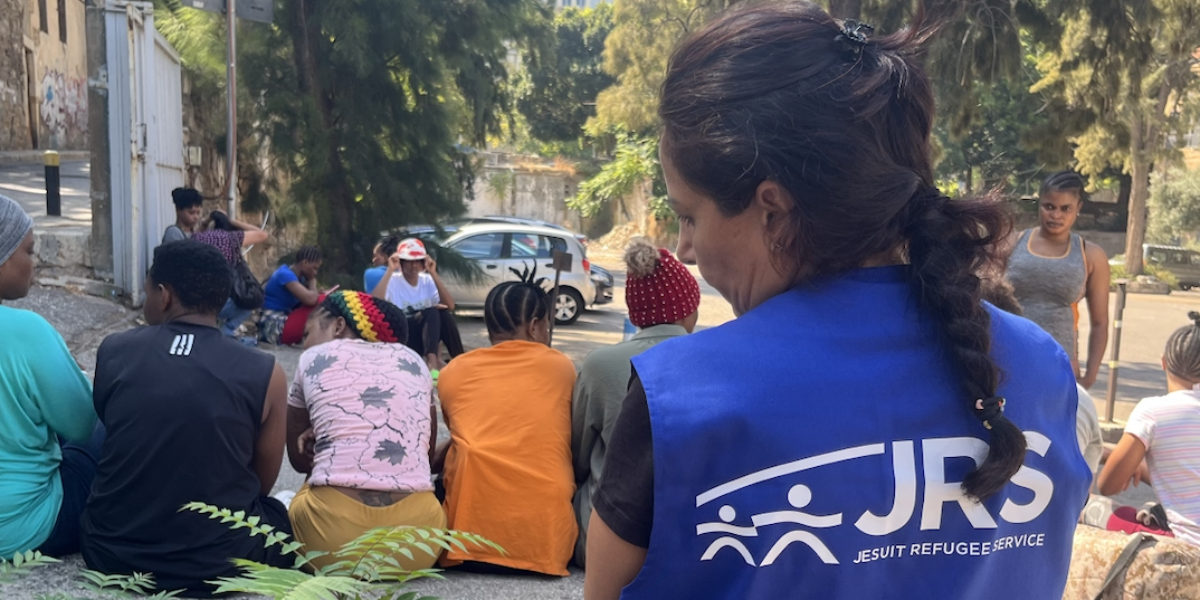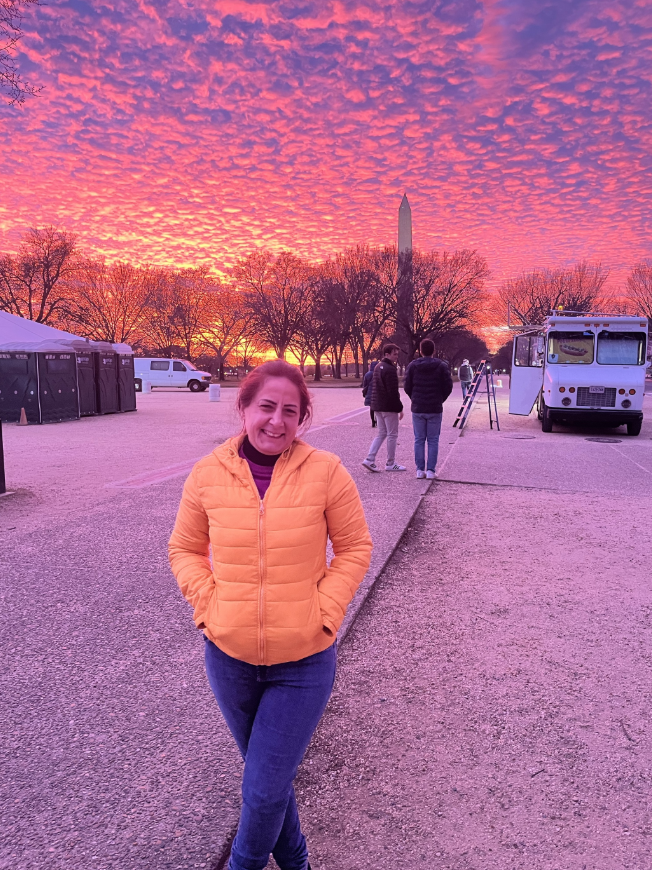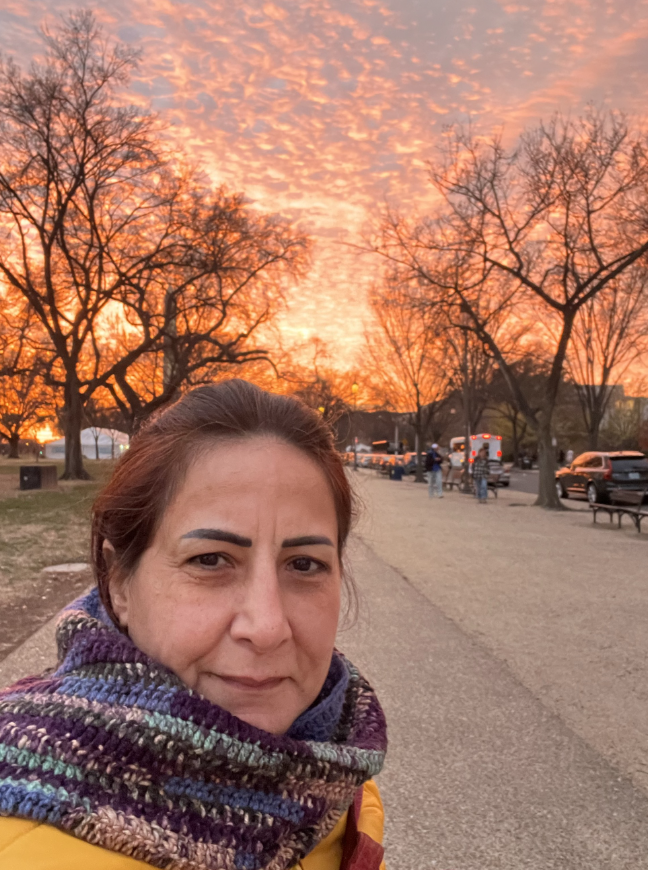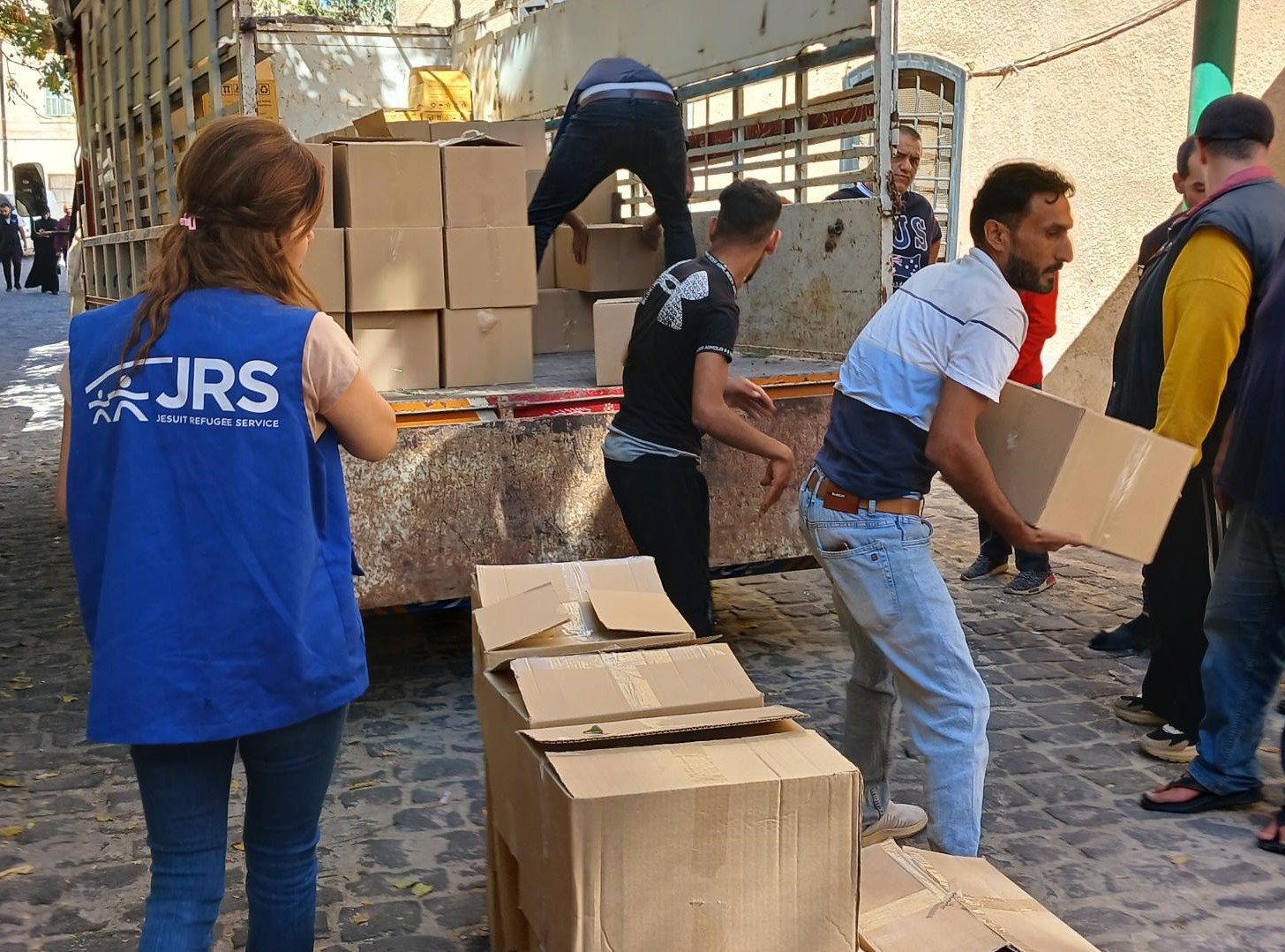Meet Noelle, the JRS Psychologist Leading MHPSS Programs in MENA
17 January 2025|Chloe Gunther

“This job is my prayer manifested; it is my dream come true,” says Noelle Jouan, the Middle East and North Africa (MENA) Regional Mental Health and Psychosocial Support (MHPSS) Officer. Recently, she traveled to Washington, DC, to meet with six other regional officers, where they exchanged practices and began developing the strategic framework for the next four years of JRS MHPSS programs.
“I am excited to return to my home,” Noelle said during our conversation in mid-December, just ahead of her flight back to Beirut. At the time, hostilities in Lebanon between Israel and Hezbollah had just been brought to an end by a ceasefire.
Noelle grew up in Lebanon, where her next-door neighbor, a psychiatrist, sparked her curiosity about the field of mental health. The more she learned, the more she recognized her calling. However, the stigma surrounding mental health was pervasive, and her parents discouraged her from pursuing the field. 
“They did not support me,” Noelle said with a laugh. “But now they are proud of me.” She initially obtained a degree in teaching tbut soon pursued studies in clinical psychology. For more than 12 years, she completed extensive training including specializations in psychoanalytic eye movement desensitization and reprocessing, talk therapy, and substance use disorders. “I don’t believe in one approach,” Noelle explained. “I embrace these practices and apply them on a case-by-case basis.”
Since graduating, Noelle has worked as a clinical psychologist for several non-governmental organizations. Over her years in the field, she has witnessed a significant shift in Lebanon’s mental health landscape. “When I started, you couldn’t really admit you needed to see a psychologist,” Noelle shared. “But now, you can.”
When a position opened with JRS MENA, Noelle eagerly applied. She sought a role that would align her technical expertise with her values of faith, charity, and belief in humanity. Today, she oversees MHPSS operations across JRS offices in Lebanon, Iraq, Syria, and Jordan. Acting as a link between country officers and the global MHPSS staff, Noelle supports offices with implementation and problem-solving.
From October 1 to late November, bombings devastated Lebanon. In response, JRS rapidly suspended regular programming, shifting focus to providing emergency assistance to migrants who were denied shelter and support from the Lebanese government. JRS transformed two spaces into shelters where migrants could find food, water, and a safe place to sleep.
Noelle visited one of these shelters the Sunday after the bombing began. “I saw migrants in distress. They weren’t eating or sleeping, but once they found safety at the shelter, all of this changed,” she recounted. Central to JRS MHPSS operations is the understanding that our communities are exhibiting normal reactions to extraordinarily abnormal situations.
At the shelters, JRS psychosocial support officers organized recreational activities and introduced social-emotional learning tools to help children cope with the devastating situation. “Seeing the children smile and run around was very touching,” Noelle said. The shelters also held group sessions for women to share their emotions and experiences. “They were eager to share,” Noelle reflected “When they spoke and felt listened to, when they heard and validated each other’s experiences, they felt so relieved.”
 Since the November 27 ceasefire, JRS has been accompanying migrants, displaced Lebanese, and refugees as Lebanon begins to rebuild. Regular programming has resumed, and teams are gradually transitioning people out of the makeshift shelters into more permanent housing. By the end of January, funds supporting the shelters will be redirected to providing rent assistance and support the transition.
Since the November 27 ceasefire, JRS has been accompanying migrants, displaced Lebanese, and refugees as Lebanon begins to rebuild. Regular programming has resumed, and teams are gradually transitioning people out of the makeshift shelters into more permanent housing. By the end of January, funds supporting the shelters will be redirected to providing rent assistance and support the transition.
Before her visit to DC, Noelle visited the shelters often, focusing on leading women’s support groups. “This is the recovery part of our mission,” she said. MHPSS offers refugees and forcibly displaced people opportunities to heal, learn, and determine their own futures.
Looking to these futures, Noelle is hopeful. She sees MHPSS being further integrated into JRS’s programs, increasing access to services. “The stigma surrounding mental health has significantly improved,” Noelle said. “Now we can raise more awareness about the importance of seeking this support.”
If you are interested in learning more about JRS’ MHPSS Programs and how you can get involved, visit this webpage.


